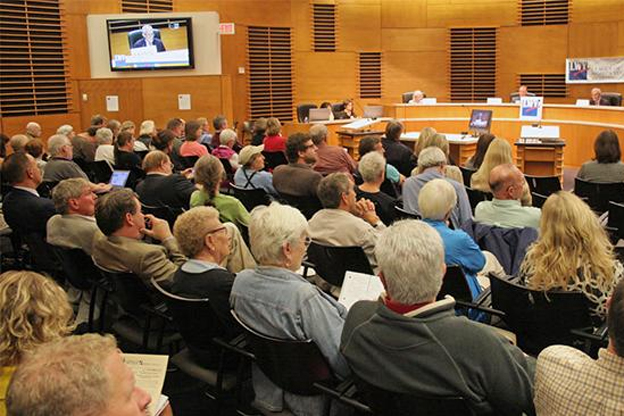

#49 debate, part five
If you have been living under a giant rock, or you are a Republican candidate in District 49, you might be unaware of an important campaign electioneering and disclosure bill that has been blocked by a couple of special interests — the so-called “right to lifers” and the gun lobby — for some time, and they managed to block it in the Legislature again in 2014. Here’s what the Friends of the Earth said about that:
Levels of special interest money in politics have been increasing in Minnesota. Minnesota League of Women Voters pointed out that, since the Citizens United Supreme Court decision, “independent spenders” (special interests who operate separately from political candidates) have poured billions of dollars into billboards, advertisements and mailings designed to influence elections. In fact, during the last election candidates themselves spent about only $9.6, while independent spenders paid almost $13.9 billion electioneering.
This boom in independent expenditures has occurred against the backdrop of weak transparency laws in Minnesota. A 2013 study by the National Institute on Money in State Politics compared campaign finance disclosure laws in different states and gave Minnesota a grade of F. The main reason for this failing mark is because Minnesota has poor rules around electioneering communications. These are ads that, in the words of the Brennan Center for Justice, “trashes the candidate on election eve.” Often they smear (or glorify) someone running for office, but technically do not urge voters to support or oppose a candidate, thus exploiting a loophole in campaign finance disclosure rules.
In May 2014, the Minnesota legislature considered a bill that would have gone a long way in fixing this problem: HF (House File) 1944 and its companion bill in the State Senate, SF 1915. This proposed law would have tighten up many of the big loopholes in the state’s disclosure laws, including the one mentioned above. If enacted, it would have helped Minnesota voters learn more about which special interests are giving how much to which candidates. Shining light on the dark money — money from undisclosed, often non-local sources — can help ordinary voters hold politicians and polluters accountable.
The deer-in-the-headlights reaction to a question about the bill from both Anselmo and Sutter was, “What bill?” (You really must watch the video, friends; I can provide no adequate written substitute.)
I mean, Sweet Jesus. Regardless of political opinion, these two are just too ignorant to serve in the Legislature.
It’s a buffet of ignorance, too. You can select from Anselmo’s grinning, “It’s expensive to run for office,” to Sutter’s, “The First Amendment prevents us from doing anything.” Complete lightweights, both of them.
The bill had nothing to do with limits on contributions to candidates’ campaign committees.
And even the casual observer of the Citizens United decision knows that the majority opinion in the case used robust disclosure as a reason to uphold corporate political communications. A weakness in Minnesota law that the bill would have addressed. It isn’t a First Amendment problem, Barb.
Both Ron Erhardt and Paul Rosenthal lamented the failure of the bill.
The video is a fair use clip of the League of Women Voters video of the forums. You can see the full videos here.
Thanks for your feedback. If we like what you have to say, it may appear in a future post of reader reactions.

